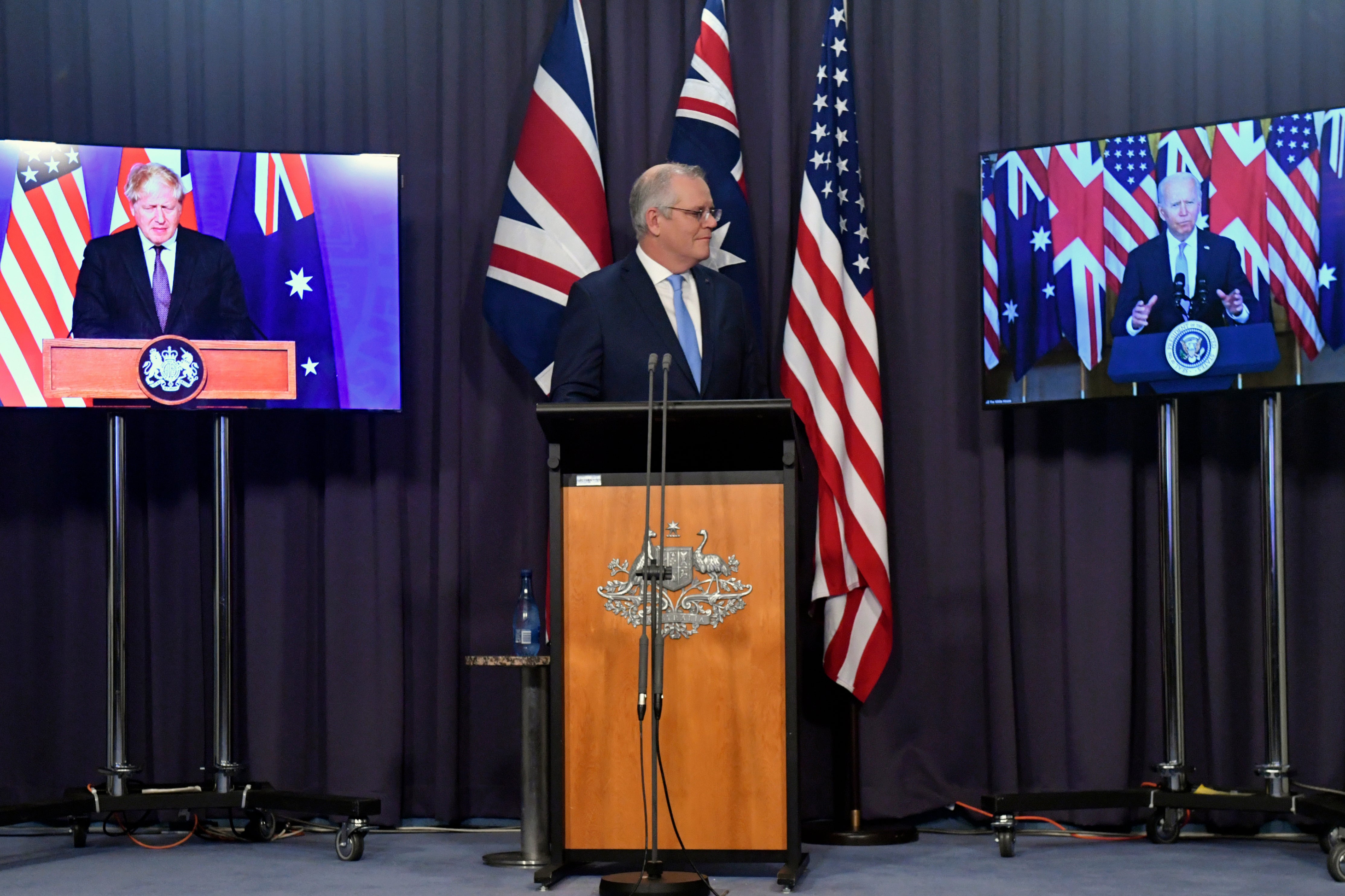Australian PM rejects Chinese criticism of nuclear sub deal
Prime Minister Scott Morrison has rejected Chinese criticism of Australia’s new nuclear submarine alliance with the United States and says he doesn’t mind that President Joe Biden might have forgotten his name

Your support helps us to tell the story
From reproductive rights to climate change to Big Tech, The Independent is on the ground when the story is developing. Whether it's investigating the financials of Elon Musk's pro-Trump PAC or producing our latest documentary, 'The A Word', which shines a light on the American women fighting for reproductive rights, we know how important it is to parse out the facts from the messaging.
At such a critical moment in US history, we need reporters on the ground. Your donation allows us to keep sending journalists to speak to both sides of the story.
The Independent is trusted by Americans across the entire political spectrum. And unlike many other quality news outlets, we choose not to lock Americans out of our reporting and analysis with paywalls. We believe quality journalism should be available to everyone, paid for by those who can afford it.
Your support makes all the difference.Prime Minister Scott Morrison on Friday rejected Chinese criticism of Australia's new nuclear submarine alliance with the United States and said he doesn’t mind that President Joe Biden might have forgotten his name.
China reacted angrily when Biden, Morrison and British Prime Minister Boris Johnson used a virtual news conference this week to announce a trilateral defense alliance that will provide Australia with a fleet of at least eight nuclear-powered submarines.
Chinese Ministry of Foreign Affairs spokesperson Zhao Lijian said it was “highly irresponsible” for the U.S. and Britain to export the nuclear technology.
Morrison said Australia wanted to boost peace and stability in the Indo-Pacific region.
“Everything we’ve done with the United States is consistent with the partnerships and relationships and alliances we’ve already had with the United States,” Morrison told Radio 3AW.
News of the alliance received a positive response in Singapore. The island-state’s Prime Minister Lee Hsien Loong told Morrison in a phone call he hoped the nuclear deal would “contribute constructively to the peace and stability of the region and complement the regional architecture,” Singapore’s Ministry of Foreign Affairs said in a statement.
French leaders have been scathing of the deal that scuppers a contract with France to build 12 conventional diesel-electric submarines for Australia.
Observers say Biden appeared to have forgotten Morrison’s name during Thursday’s news conference, which was televised from three countries. The president referred to the Australian as “pal" and “that fellow Down Under.”
Biden didn't use Morrison's name, while he referred to Johnson as “Boris.”
It reminded Australians of when then-President Donald Trump’s spokesman Sean Spicer repeatedly referred to Morrison’s predecessor, Malcolm Turnbull, in 2017 as “Mr. Trumble.”
Morrison laughed off what some have described as an awkward exchange with Biden that undermined Australia’s significance to the United States.
“Usually when we speak privately, he refers to me as ‘pal,’” Morrison told the Seven Network.
Morrison said he and the president enjoyed a great working relationship.
“Oh, I didn’t pay much attention to it. I mean, these things happen. They happen frequently,” Morrison told Nine Network.
“From time to time, you know, I’ve been known to let the odd name slip from my memory — that’s pretty normal in our line of work, I’ve got to be honest,” he added.
Morrison said he referred to Biden as “Mr. President” or “mate” in private conversations.
Morrison will visit the United States next week for the first time since Biden became president. The pair will be joined by the leaders of India and Japan for a meeting of the Quad security dialogue.